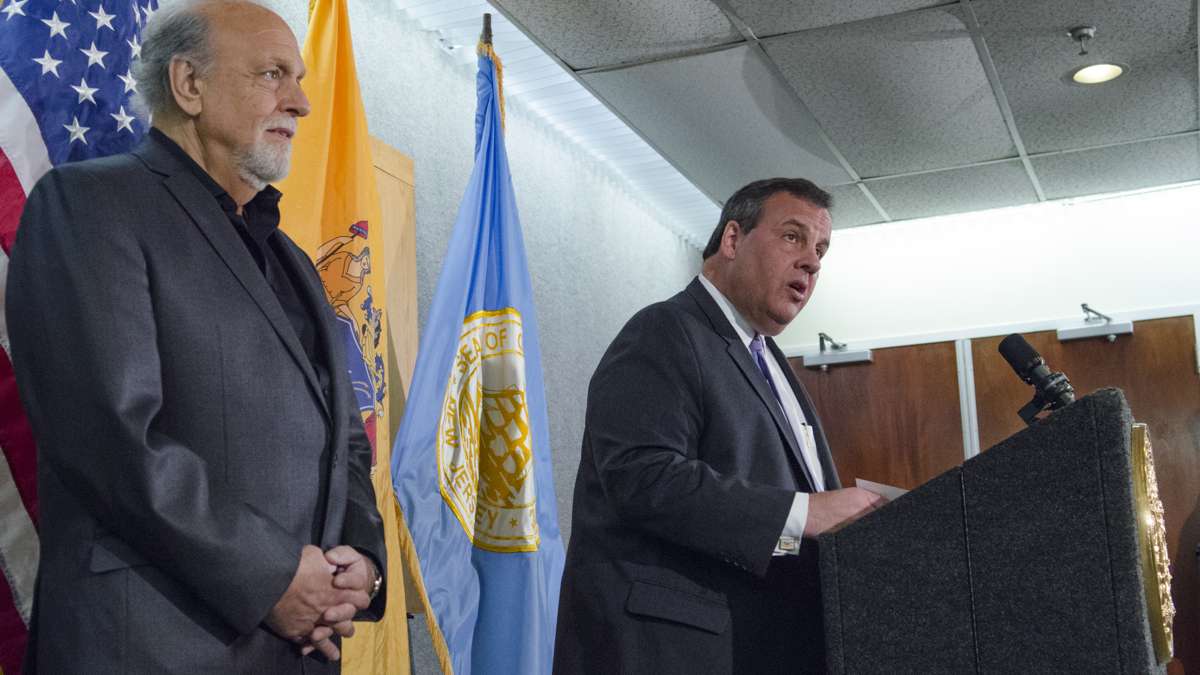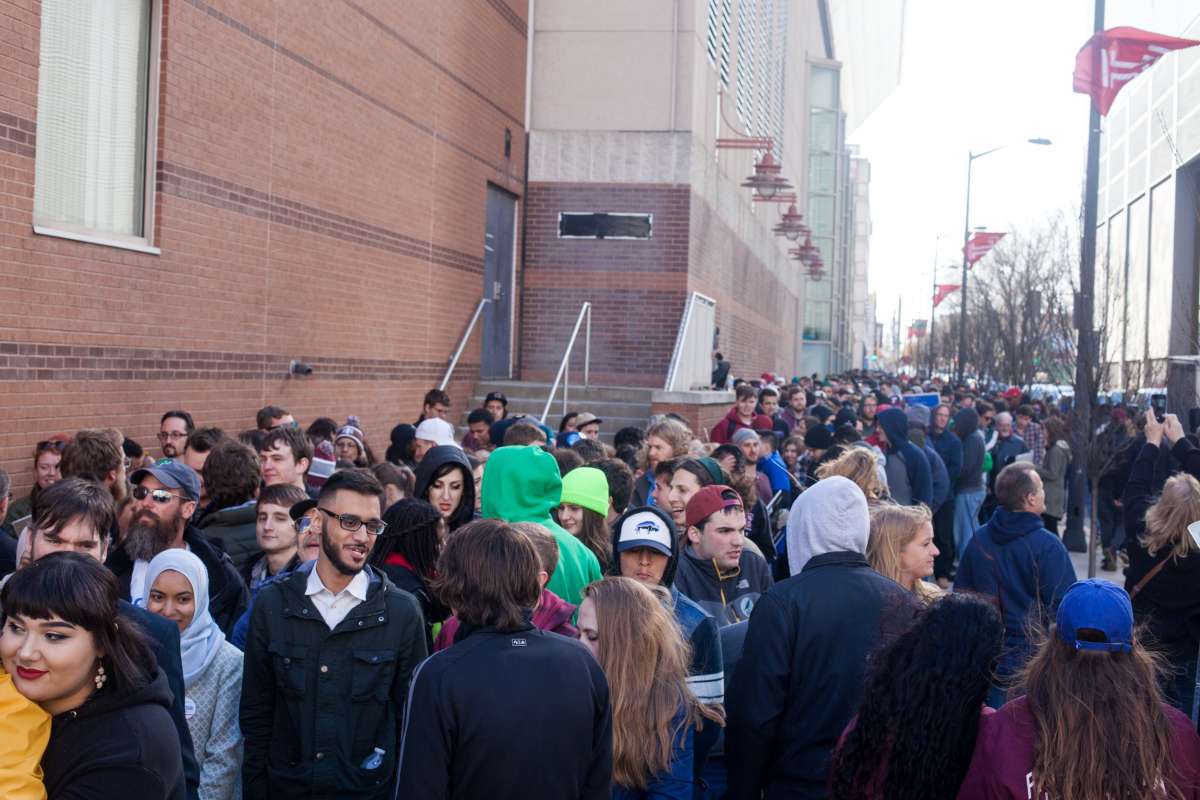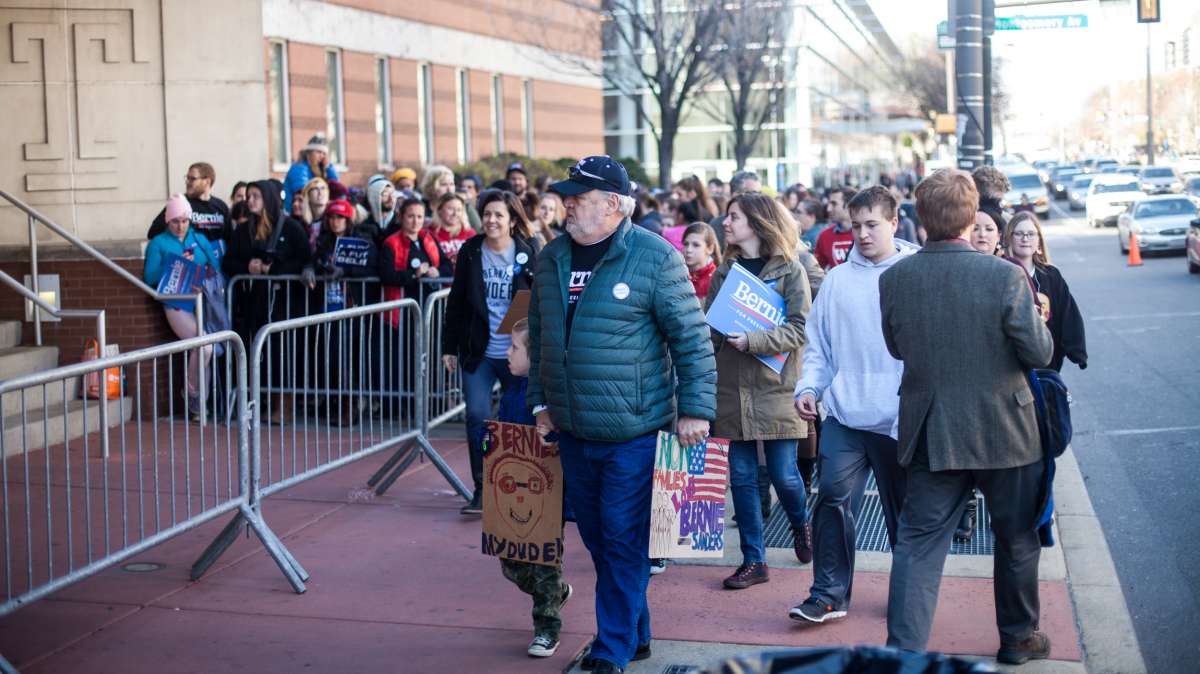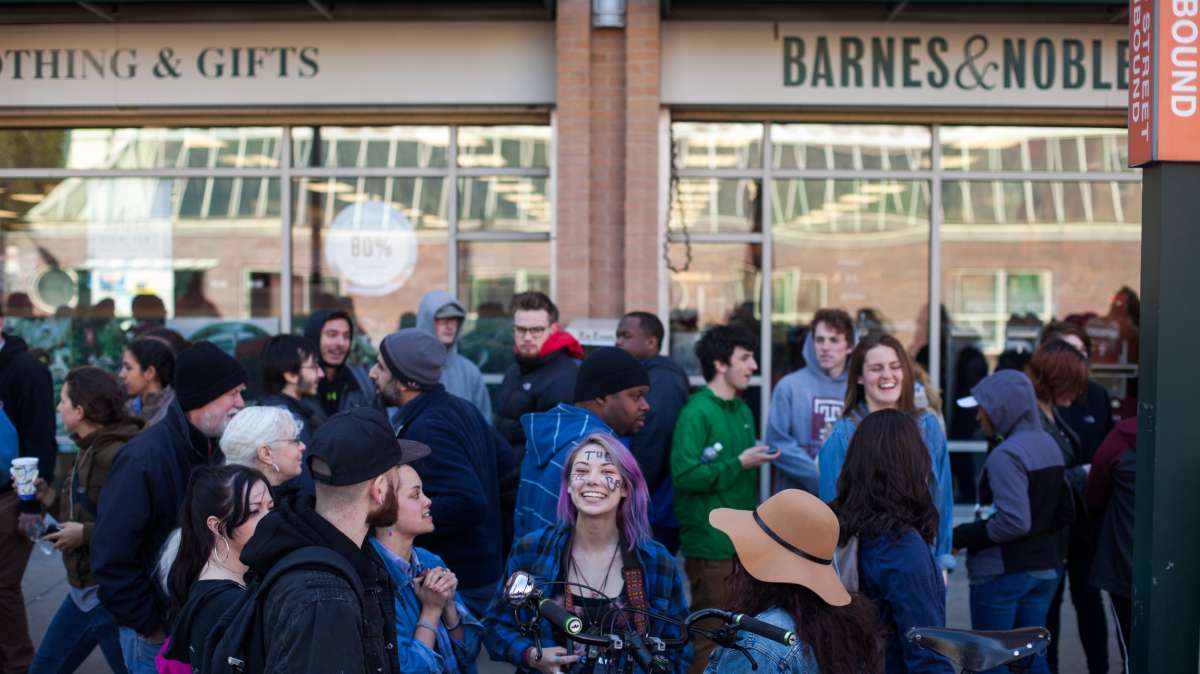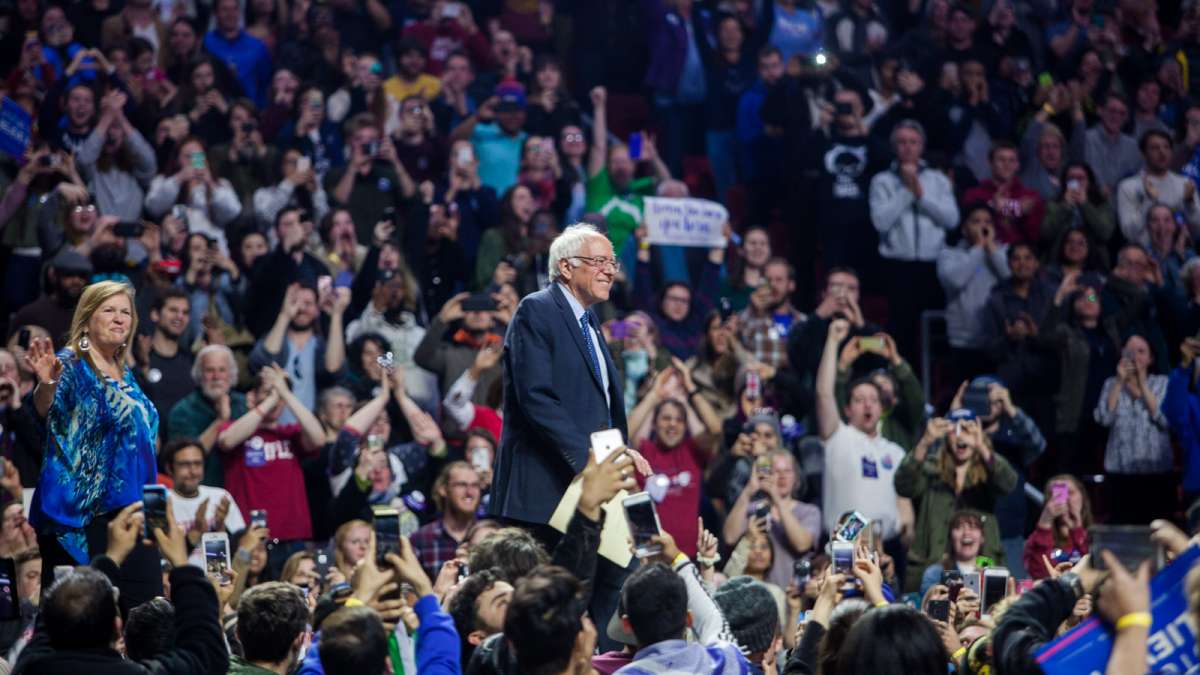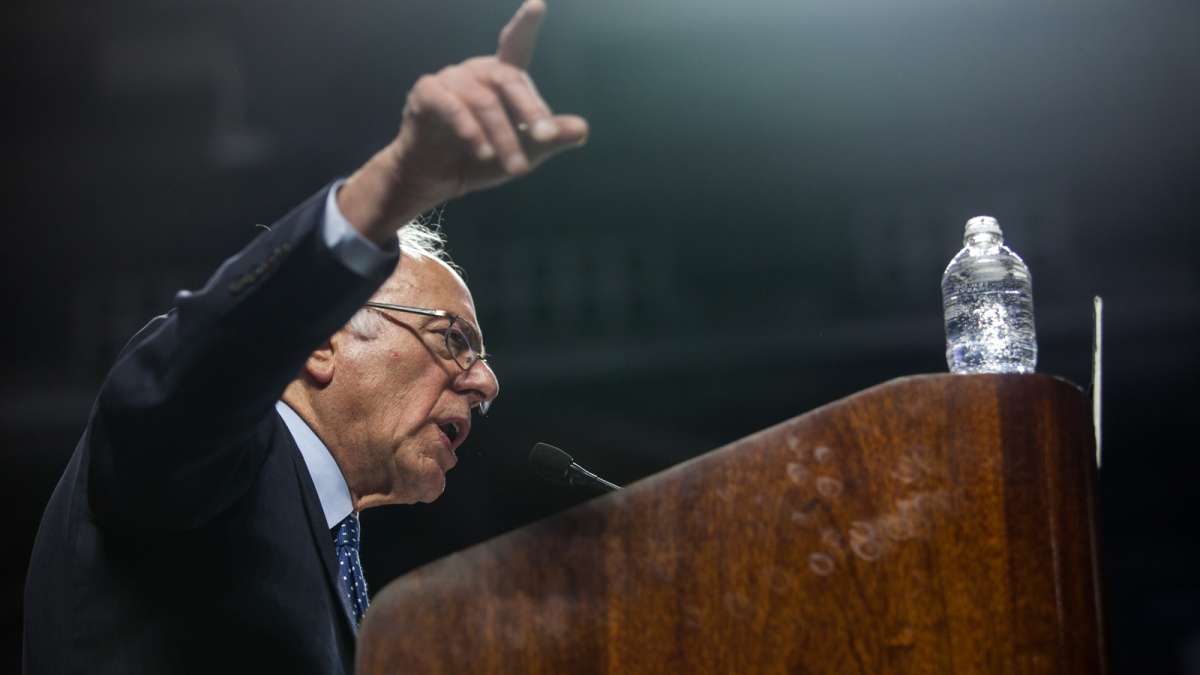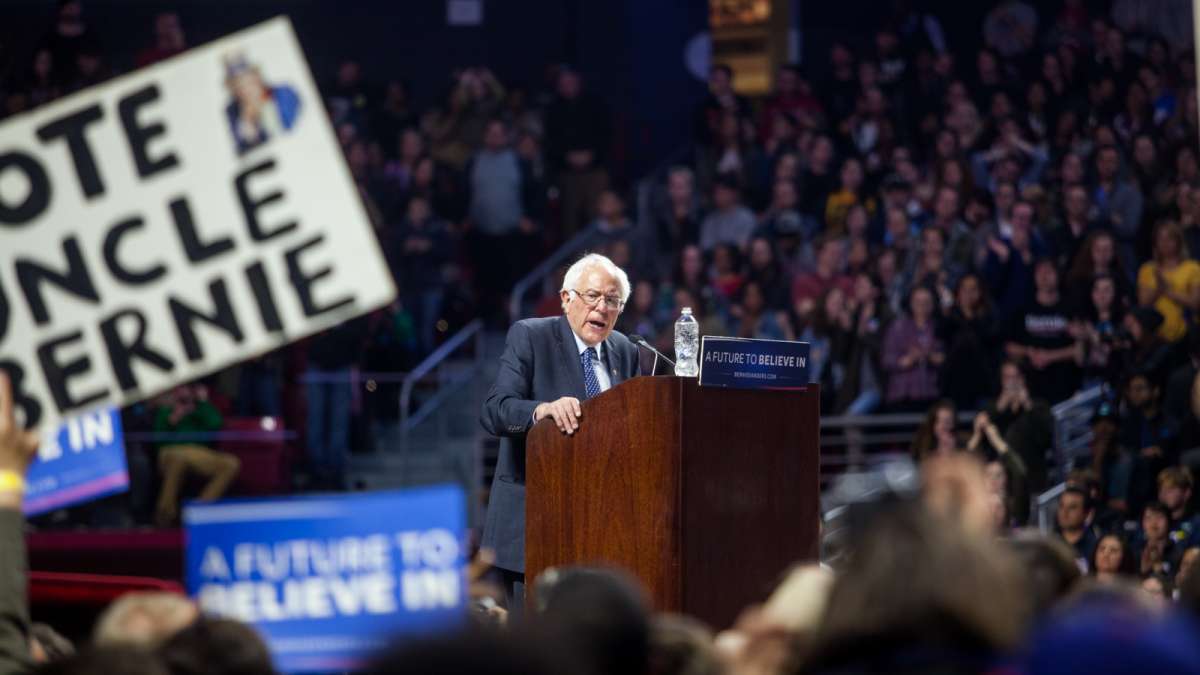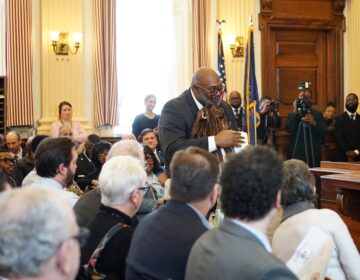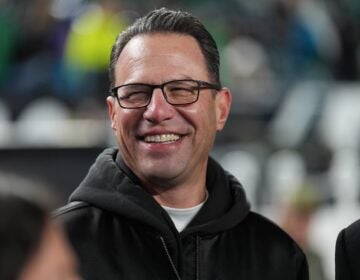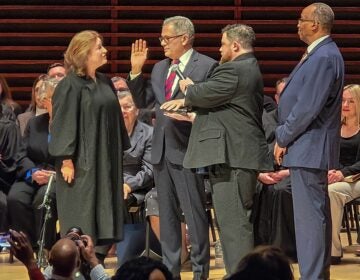Bernie urges supporters in Philly to fight the ‘status quo’
Philly was “Feeling the Bern” Wednesday night.
Before a raucous, youthful crowd inside Temple University’s Liacouras Center, Democratic presidential candidate Bernie Sanders made a multi-pronged case for why voters here should pick him on April 26, the Pennsylvania primary.
The thousands seated inside the arena’s cherry-red seats didn’t need much convincing.
During an hour-long speech punctuated by near-constant cheering, Sen. Sanders moved from campaign finance reform to fixing a “rigged” economy, from raising the minimum wage to making public colleges and universities tuition-free. That last point got the crowd particularly pumped.
“Anybody here with student debt?” Sanders asked to wild applause. “Welcome to the club.”
Sanders’ stance on marijuana got a similar reaction from the crowd, which encircled the Liacouras Center for hours before the event. He said pot shouldn’t be classified as a Schedule 1 drug — the same designation given to cocaine and heroin.
“Marijuana is not heroin — that’s for sure,” said Sanders. “I don’t believe that possession should be a federal crime.”
Sanders’ speech largely focused on the issues he feels — collectively — will help “change the status quo.” But he did take a few minutes to address Hillary Clinton, who currently leads the race for the Democratic nomination.
Sanders said her claim that he’s “not qualified” to be president simply isn’t true. If anyone isn’t qualified, he said, it’s Clinton.
“I don’t think you’re qualified if you get $15 million from Wall Street for your Super PAC,” he said. “I don’t think you’re qualified if you have voted for the disastrous war in Iraq.”
Sanders hit similar themes earlier in the evening during a campaign stop at Tindley Temple United Methodist Church in South Philadelphia.
Before a predominantly African-American crowd, Sanders was asked a few city-centric questions, including how he’d fix a “messed up” school district and rebuild Philadelphia’s struggling communities.
In response, Sanders, who acknowledged that he wasn’t “all that familiar” with the city, talked about the need to raise the minimum wage and provide affordable childcare.
Sanders also said he wants to improve commnity-police relations and fix a “broken” criminal justice system.
“When police officers break the law, they will be held accountable. When people die while being apprehended by police or die in police custody, that will initiate a federal Department of Justice investigation,” said Sanders.
Sanders’ remarks came one day after winning the Democratic primary in Wisconsin — 56.5 percent to 43.1 percent over Clinton.
The victory marked Sanders’ sixth victory in seven contests. He picked up 48 delegates. Clinton took home 38.
The win in Wisconsin shrunk Clinton’s overall lead in pledged delegates. She now has 1,280 to Sanders’ 1,030.
Clinton or Sanders needs 2,383 to become the Democratic nominee.
Nearly 2,000 delegates are still up for grabs in the remaining states, including 210 in Pennsylvania.
Going forward, Muhlenberg College poltical science professor and pollster Chris Borick said Sanders would need to win and win big as the race moves to states in the Northeast, including Pennsylvania, where polls still show him trailing badly behind Clinton.
“That is a mathematically difficult task for him. He has to win incredibly large percentages in these big states like Pennsylvania and New York to really cut into that lead to the point where he might be putting pressure on the superdelegates,” said Borick.
Clinton is also campaigning in Pennsylvania this week. On Wednesday morning, she spoke during the state’s annual AFL-CIO conference at the Pennsylvania Convention Center.
Clinton emphasized her support for unions, but also took a shot at Sanders.
“Like a lot of people, I am concerned that some of his ideas just won’t work because the numbers don’t add up. Others won’t even pass,” Clinton told a crowd of union employees.
Sanders will take his turn speaking to conference-goers Thursday morning.
WHYY is your source for fact-based, in-depth journalism and information. As a nonprofit organization, we rely on financial support from readers like you. Please give today.







